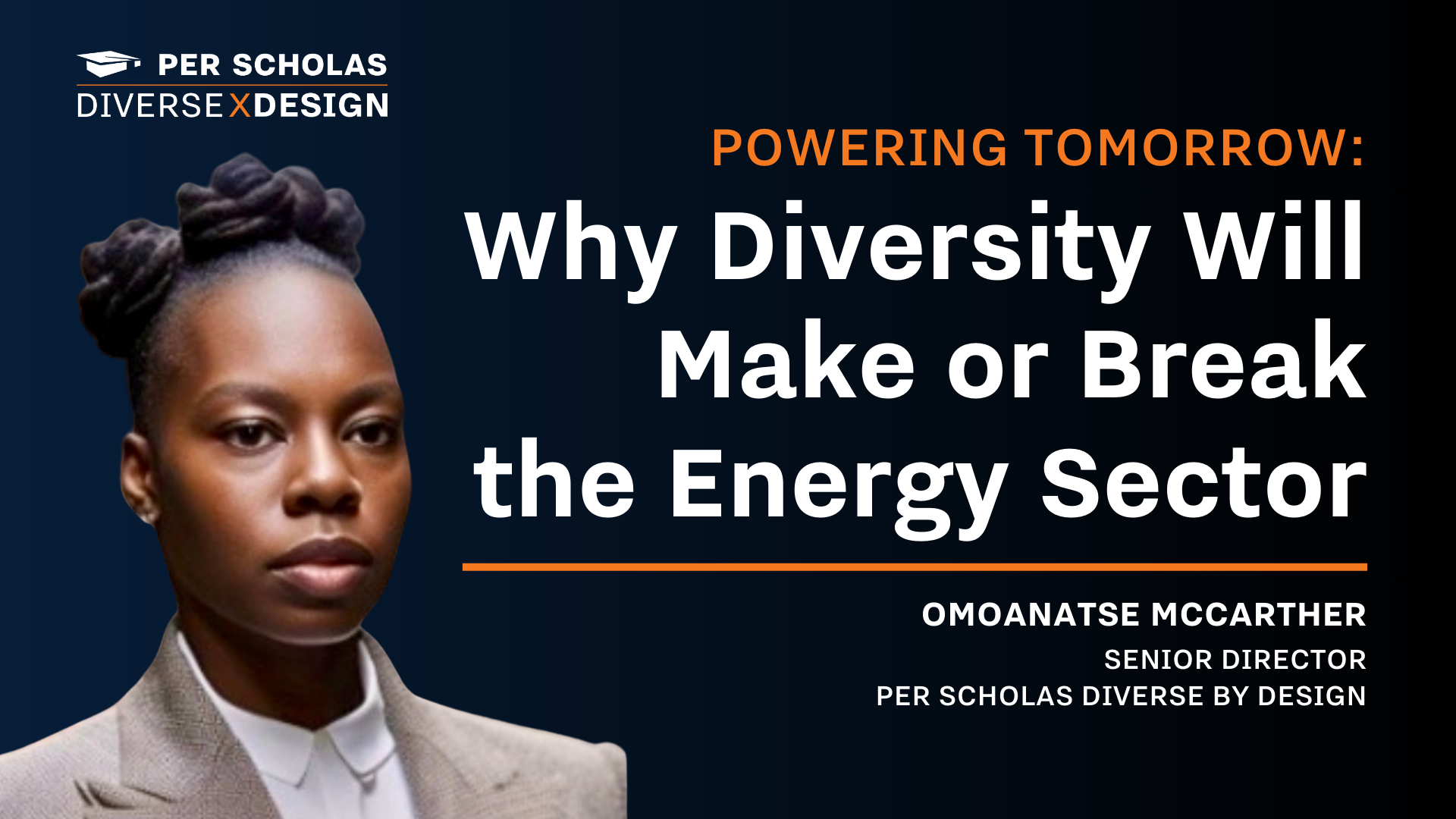
Powering Tomorrow: Why Diversity Will Make or Break the Energy Sector

The energy sector stands at a crossroads, facing a stark choice: evolve or stagnate. As demands for renewable energy surge and infrastructure modernization become critical, as a result of a significant skills gap that current hiring practices alone struggle to address. For instance, a McKinsey Global Survey reported that 87% of executives either are experiencing skill gaps now or expect them within a few years, underscoring the urgency for change. Yet we remain tied to outdated recruitment models that often exclude one-quarter of potential workers simply because they lack a four-year degree.
The evidence is compelling: companies with diverse management teams experience 19% higher revenue, according to Harvard Business Review. This isn’t just about meeting quotas; it’s about survival. In an era where data analysts, software developers, and cybersecurity specialists form the backbone of our energy future, we cannot afford to limit our talent pool.
These professionals aren’t peripheral to our mission—they’re the architects of smart grids, the guardians of our digital infrastructure, and the strategists optimizing our energy consumption. Their diverse perspectives enhance our resilience against cybersecurity threats and drive the creative problem-solving needed for the complexities of modern energy systems.
“I’ve seen how the lack of diversity, particularly in high-growth sectors like energy, stifles innovation and limits opportunity,” says Ed Veloz, Senior Human Resources Business Partner at Bloomberg. “The sector’s shift towards renewable energy and sustainable practices demands a workforce that reflects the diversity of our communities. By investing in diverse talent pipelines and skills-based hiring, we not only address the immediate skills gap but also ensure that underrepresented groups have equitable access to these emerging opportunities. It’s not just about filling roles; it’s about building a more inclusive and resilient industry that can meet the complex challenges ahead.”
Breaking Down Barriers, Building Up Talent
The solution demands more than incremental change. We must fundamentally reimagine how we identify, develop, and support talent. Skills-based hiring—emphasizing capabilities over credentials—represents a crucial first step. Organizations like Per Scholas and the JPI Group are already demonstrating how targeted training can transform lives and industries by tapping into the talent of underrepresented communities.
“At The JPI Group, we are committed to ensuring that underrepresented talent plays a crucial role in the energy transition,” said Paul Douglas, President. “Through our partnership with Per Scholas, we’re building pathways for graduates to enter key sectors like utilities, renewables, clean transportation, energy storage, and energy efficiency. Together, we’re creating a more diverse, inclusive, and impactful energy workforce.”
Consider the power of apprenticeships and internships in this transformation. These programs do more than provide hands-on experience—they create vital pathways into the industry for talented individuals who might otherwise never find their way to energy careers. When combined with strategic mentorship programs connecting trainees with experienced professionals, we create a powerful ecosystem of support and growth. Scholarships and innovative pay-for-performance structures can provide crucial financial support, opening doors for talented individuals from underrepresented backgrounds who have long been excluded from the energy industry.
The complexity of today’s energy landscape demands more than just technical expertise. We need diverse perspectives to drive breakthrough solutions, enhance strategic thinking, and improve operational resilience. As the energy industry grapples with rising regulatory standards and evolving customer demands for sustainable practices, the value of diverse thinking becomes even more apparent.
“The energy industry encompasses a wide array of science, technology, and business disciplines, which need a diverse workforce to bring a broad social perspective to its future,” said Rashida Ricks, Vice President of Strategic Engagement and Business Operations at CGI Partner, an information technology and business consulting firm. “As the clean energy transition in the U.S. progresses, it is crucial to include the voices of those disproportionately impacted by environmental hazards and those who lack access to resources. This article demonstrates why CGI partners with organizations like Per Scholas to build diverse, energy-knowledgeable, and tech-fluent talent pipelines that can address the needs of these underserved communities.”
This goes beyond traditional Environmental, Social, and Governance (ESG) metrics. Energy stakeholders increasingly demand that companies demonstrate genuine social responsibility, and effective ESG strategies resonate deeply with investors and customers alike. A commitment to diversity isn’t just about meeting metrics—it’s about strengthening the industry’s social license to operate and building lasting trust with the communities they serve.
The Path Forward
The energy sector powers society’s progress, and our workforce should reflect the diversity of the communities we serve. This isn’t just about fairness—it’s essential for innovation and long-term survival. The challenges we face—from cybersecurity threats to the transition to renewable energy—demand the fullest expression of human potential.
Industry leaders must embrace a comprehensive transformation of their approach to talent. This means moving beyond traditional recruiting to embrace skills-based hiring across all levels. It means investing in apprenticeship and training programs that create real pathways to success. It means building mentorship initiatives that support long-term career development and providing meaningful financial support for non-traditional candidates. Above all, it means partnering with organizations like Per Scholas that specialize in developing diverse talent and creating sustainable career pathways.
The transition to a more sustainable, equitable energy future isn’t just about technology—it’s about people. By breaking down barriers and creating inclusive pathways to employment, we can build a more innovative, resilient, and powerful energy workforce. As we face unprecedented challenges in modernizing our infrastructure and meeting growing demands for renewable energy, the diversity of our workforce will determine our ability to innovate and adapt.
The future of our industry—and our planet—depends on our ability to think differently about potential. The transformation begins now. Connect with Per Scholas today to explore how we can build your future workforce together.
Sign up for our Monthly Impact Report
More News

Donate Now
Your support makes a powerful difference in our ability to build a technology talent training solution that creates greater access and equity.

